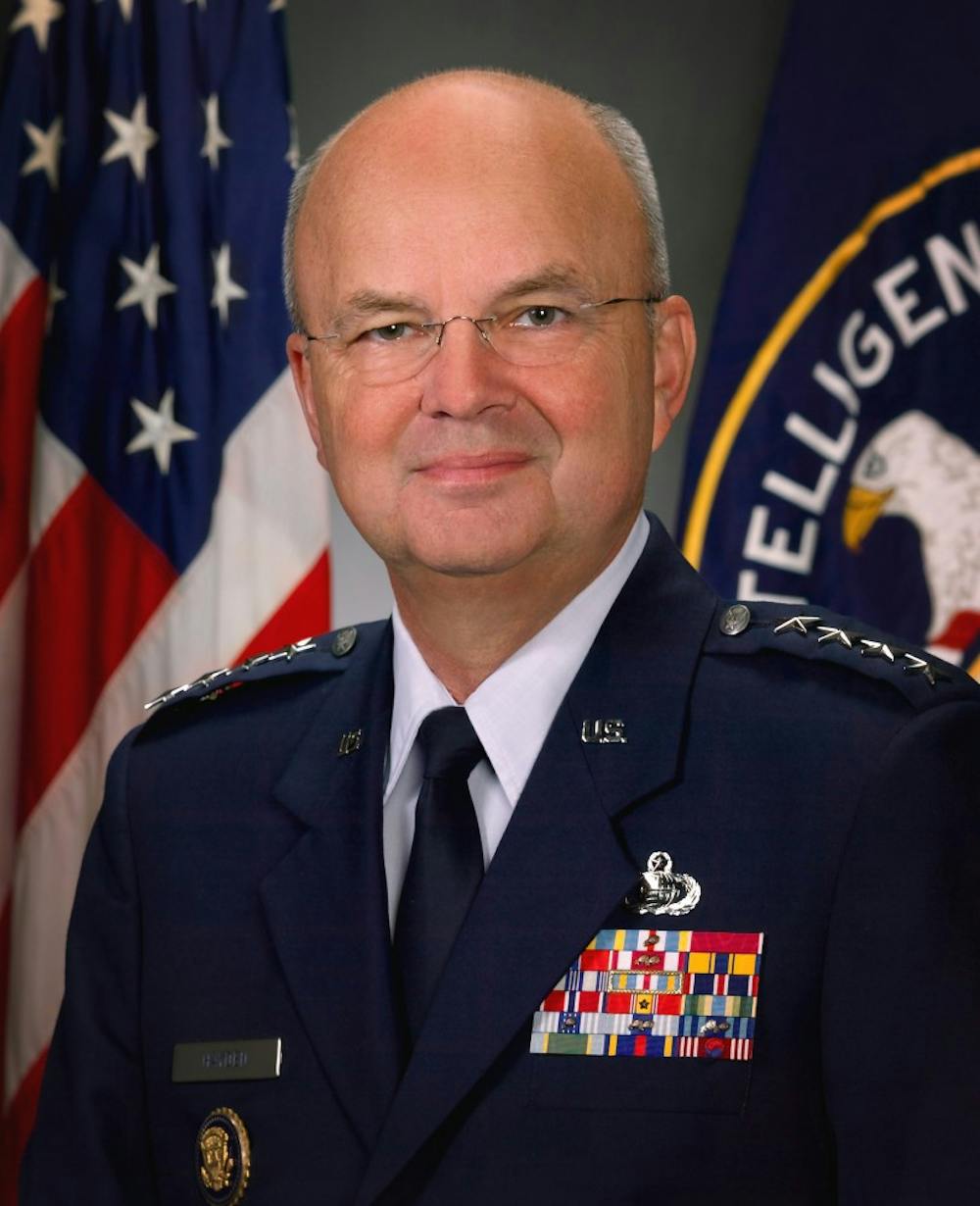Espionage defends liberty by promoting national security, former Central Intelligence Agency director Michael Hayden argued in a lecture on Thursday.
“The secret pursuit of secret truth is not only compatible with, but essential to, American democracy,” he said.
Hayden directed the CIA from 2006 to 2009, along with the National Security Agency from 1999 to 2005. As the principal deputy director of national intelligence, he represented the highest-ranking intelligence officer in the armed forces from 2005 to 2006.
Hayden explained that espionage reduces fear. Fear causes people to tread on the rights, freedoms, and privacies of others, and eventually themselves. Therefore, security efforts deserve more credit.
“American espionage is as old as the Republic,” he noted, saluting President George Washington as the nation's first spymaster.
The relationship between intelligence officials and any president of the United States fits a mold, Hayden said. Intelligence officials emphasize facts, deductive reasoning, pessimism, and the world as it is. Meanwhile, the president brings vision, inductive reasoning, optimism, and the world that Americans want.
“The CIA exists only to make the President wiser and more effective. Period,” he said.
According to Hayden, intelligence officials expected interactions to falter more than usual with President Trump, given the President’s known penchant for presuppositions. The President’s first security issue involved Russia’s interference in the United States presidential election. That problem grew when many Americans used the controversy over Trump’s victory to challenge his legitimacy as President-elect. It continues to wreak havoc even now, Hayden said.

Hayden portrayed Russia as deteriorating. Lacking democracy, Russia has a colonial economy colonized by other Russians, where the elite exploit declining nonrenewable resources like oil and gas. The population is also dropping because of a low birth rate and high mortality rate. Violence, traffic accidents, and substance abuse mark the leading causes of death for Russian men, he said.
Russian President Vladimir Putin has attempted to redress Russian historical grievances, including in the Ukrainian territory of Crimea, in a desperate bid to salvage his reputation. To obtain domestic validation, he needs to instill pride in Russians — hence his opposition to the EU, support for Brexit, hostility to NATO, and other attempts to demean Western institutions, Hayden explained.
Moving forward, he insisted that U.S. intelligence agencies must grow not more transparent, but rather more translucent. Translucence reveals the outline of affairs without the operational details, he said.
“To be successful, we all need to be two things: secretive and powerful. And we exist inside a political culture that’s frightened and stressed over two things: secrecy and power,” Hayden noted, recounting his words from when he directed the NSA.

Hayden’s experiences have made him support whistleblowing, he said.
“Whistleblowing is good, because by definition, a whistleblower is blowing a whistle on something that should not be done,” Hayden said. “A true whistleblower who courageously stands up and points out something that’s inconsistent with law or policy — you’ve got to have that.”
Yet he cautioned that the public often uses “whistleblower” to describe anyone who exposes what they dislike. For example, Edward Snowden labeled himself a whistleblower, even though his leaks concerned conduct that was perfectly legal. Hayden criticized such “disclosures of massive amounts of information by someone who has stolen them.”
Hayden added that the emergence of a whistleblower signals trouble within an organization, which must lack internal channels for resolving concerns.
Titled “American Intelligence in the Age of Terror,” the lecture was sponsored by the Wilson School and took place at 4:30 p.m. on April 6. The audience filled the Dodds Auditorium at Robertson Hall.








